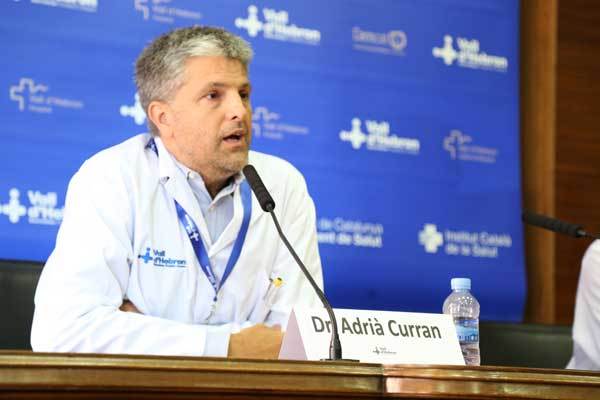Researchers at Vall d'Hebron Hospital in Barcelona have discovered that a drug used in cancer treatment can eliminate cells that reactivate the human immunodeficiency virus (HIV) and could be key to finding the cure for AIDS.
The leader of the work and researcher of the Group of Infectious Diseases of the center, María José Buzón, explained that it is the drug "Rituximab", already used in some cancer treatments, that suppresses the cells that replicate the virus and express a molecule called CD20.
With this technique, which is currently in the testing phase and cannot yet be applied to patients, HIV cells that are infected but remain dormant in the body and "hide" in reservoirs can be reduced by up to 64%.
A phase that, according to Mailbox, is crucial both to design new strategies to eliminate these reservoirs and to develop "the only way to cure patients with HIV."
However, the doctor of the Infectious Diseases Service of the hospital, Adrià Curran, has specified, " we are not talking about an option that is the alternative to antiretroviral treatment, but it is a new way that opens up to find better tolerated drugs that do not have toxicity and that can be used in clinical practice. "
To reach this conclusion, the researchers have studied the cells of more than eighty patients with HIV, who have reactivated the virus that they have later fought using the drug.
This has allowed them to verify that "Rituximab" attacks the cells that express the CD20 molecule - the same that reactivate HIV - but also other healthy cells such as lymphocytes, which are part of the immune system, so it still does not work as an alternative to the current treatment with antiretrovirals.
"Now we have to perfect it," said Mailbox before detailing that to implement this technique they need to "use a combination of two drugs, the one that reactivates the latent virus and the one that will eliminate it," a combination that " today today it could be toxic to patients "and that requires" more research ".
Currently, HIV is a chronic infection, so infected people can live a normal life but they have to be in permanent treatment, which usually consists of taking one to three pills a day.
A "very effective and safe" solution that, according to Adrià Curran, has meant that "people relax, have lost their fear of HIV" and that the impact of the virus has not diminished in recent years at the expected rate, especially since infected people can stop being transmitters.
According to the doctor, in Spain there are between 130,000 and 160,000 people with HIV and 3,400 new cases per year, while in Catalonia the figure is around 30,000 patients and 600 new infections per year.
"It is a controlled infection but now it must be cured," said the specialist, who has warned that "people are no longer as aware."
Therefore, in his opinion, "it takes a lot of education, identification and early treatment work", among others, to alleviate the "physical, psychological and health impact" of the lifelong treatment to which patients with HIV are subjected.
According to the criteria of The Trust Project
Know more- Science and Health
HistoryThe strange dance epidemic that toured the streets of Strasbourg 500 years ago
ResearchNew findings on the presence in hospitals of one of the bacteria most resistant to antibiotics
ScienceTwo meters and 400 kilos: discover in France the monumental bone of a 50-ton dinosaur

